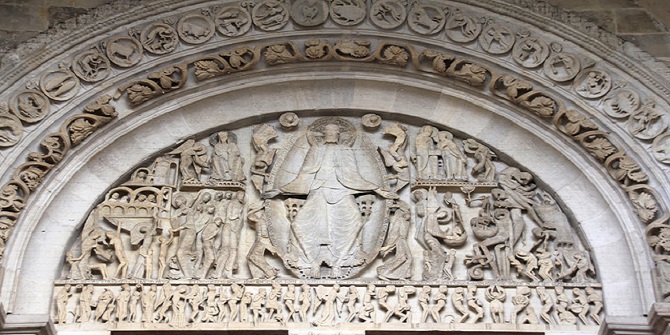LSE MSc student Anaelle Azoulay shares her reflections on Sean Jacobs’s Public Lecture ‘Shifting African Digital Landscapes’ on 17th March 2015 (chaired by Dr Wendy Willems).
Remember Kony 2012? A short film launched by Invisible Children that went viral by trying to expose Ugandan war criminal Joseph Kony and get him arrested. While the intention was laudable, the campaign came under valid criticisms. The much too simplistic storytelling of events in the region was one of the main criticisms the campaign received. More broadly, this campaign reflects western media appetite for sensationalism and western-centric approaches for dealing with complex issues happening outside of campaigners’ own borders or range of knowledge. As Sean Jacobs, Professor of International Affairs at The New School in New York and founder of the blog Africa is a country, puts it:
Some western media that pay little attention to African issues seemed astonished that reporting on something in Uganda or another country without actually talking to people from the country, you would actually turn up with something like Kony 2012.
Kony 2012 is one of many controversial examples of awareness campaigns focusing on African issues without assessing the complexity and specificity of power relations happening in each African country. In short, these campaigns are acting as if Africa was a country. Based on this observation, Sean Jacobs decided to create an alternative online public sphere where discussions would go beyond northern-centric perspectives of African issues. His blog is also a broader reflection of the shift in the digital landscape of many African countries.
The use of social media is being reinvented to increase political engagement and African heads of state are starting to take advantage of this relatively new public sphere. Paul Kagame, the current president of Rwanda, has been named “Digital President” by the International Telecommunications Union and has been praised for trying to get Rwanda “wired”. According to Sean Jacobs, Paul Kagame is the “exception that best illustrates the potential and paradox of social media for politics in Africa.” With more than 900 000 followers on Twitter, Kagame is competing quite well with his American and European fellow presidents. Famous for his candour and tweeting from his own personal account, Kagame stands out and represents a unique way of politically engaging with citizens in the digital era.
Aside from politicians, what is more interesting for future developments of actual existing public spheres in African countries is the range of opportunities created by social and online media to reach beyond elites. The Occupy Nigeria movement to protest the removal of fuel subsidies by President Goodluck Jonathan was the largest social movement in Sub-Saharan Africa. More importantly, in the case of Nigeria, the movement has also gained momentum because of the rise of new media forces such as Sahara Reporters that have been tackling such issues from a community-based and alternative perspective. Sahara Reporters’ news is based on Nigerian testimonies and allows local people to have an actual voice in trying to challenge the state.
One last remarkable example of “new African intellectuals trying to counter previous modes of representation of African countries”, in the words of Jacobs, is Kenyan writer Binyavanga Wainaina. His letter entitled “I am a homosexual, mom”, in which he first tells his late mother about his homosexuality, was published on two small African websites and quickly went viral. One of these two websites was Sean Jacobs’ blog Africa is a country. According to Jacobs, Wainaina’s choice to publish his essay on two African blogs reflected his desire for it not to be framed by western media as some kind of evidence of the “dark side of Africa” when it comes to homosexuality.
In his enriching talk, Sean Jacobs thus tried to make the point that online media could also be used to counter western-centric and sometimes inaccurate and harmful perceptions of African countries. While there is still a major digital divide to be considered, the increasing use and availability of smartphones and the internet in Africa could allow for the expansion of new kinds of public spheres. In turn, this could enable the strengthening of a new grassroots digital resistance against both western media stereotypes and the lack of alternative media sources in some African countries.
This article is by LSE MSc student and Polis intern Anaelle Azoulay





